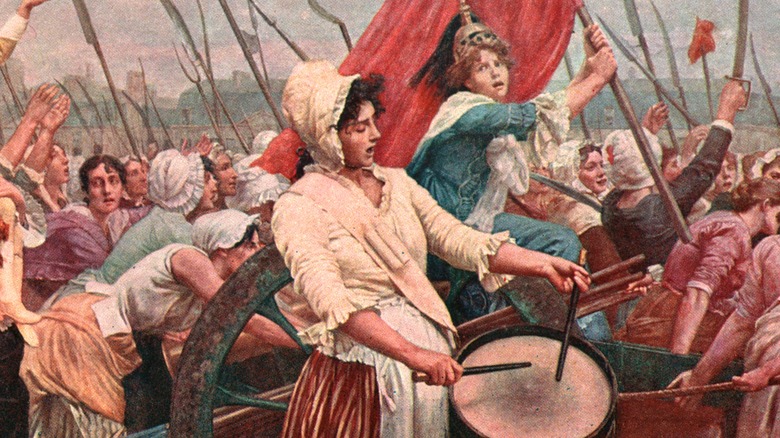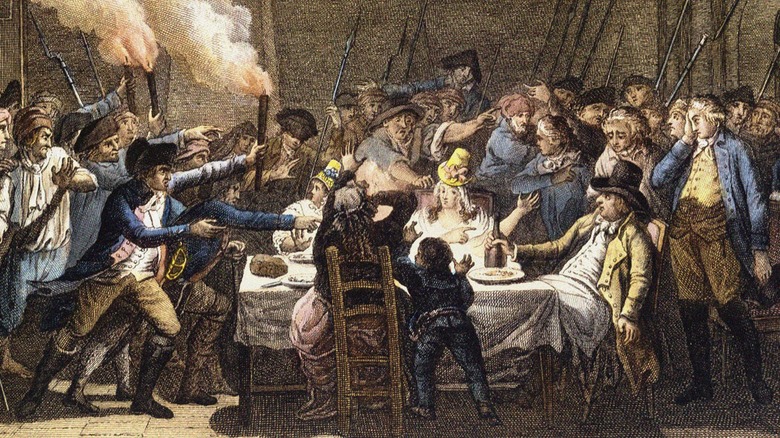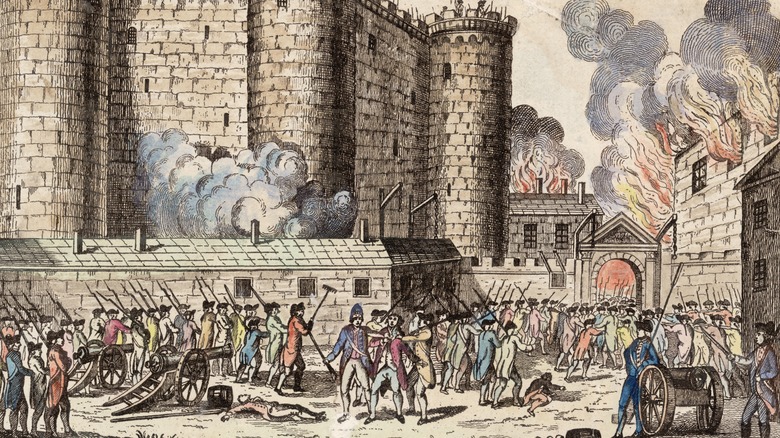The Real Reasons The French Revolution Began
The dispossessed and the oppressed have been raging against the rich and powerful for centuries. The French Revolution, which spanned most of the 1790s, is a prime example of this.
At the time the French Revolution began in 1789, many were unhappy with the monarchy, and particularly the damage inflicted upon France's economy during the rule of King Louis XVI and Marie Antoinette. According to History, France was near bankruptcy at the time due to the country's "costly involvement in the American Revolution, and extravagant spending by King Louis XVI and his predecessor."
While the French Revolution "failed to achieve all of its goals and at times degenerated into a chaotic bloodbath," per History, it was still a remarkable — and genuinely revolutionary — period in the history of not only that nation, but also that of the world. In pushing back against the monarchy, the French people proved their power by demolishing ancient institutions and rebuilding the country's political system.
The French Revolution was triggered by discontent with the monarchy and economic issues
Along with the economic devastation that came after the American Revolution and King Louis XVI's irresponsible spending, France faced major agricultural challenges near the end of the 18th century. According to History, "two decades of poor harvests, drought, cattle disease and skyrocketing bread prices had kindled unrest among peasants and the urban poor."
On top of these issues, the monarchy heavily taxed the masses and offered no economic support to those in need. Those affected by economic issues began to protest the king's authoritarian regime with increasing fervor by "rioting, looting, and striking."
Around 1786, conflicting conversations began to take shape on the issue of political reform. Many different groups joined the conversations, but each had a different idea of what the reform should entail. The privileged classes were reluctant to listen to the so-called lower classes, and didn't want to pay land taxes or give up any of their privileges.
Near the end of the 1780s, the "Third Estate," those not of the aristocracy and representing 98% of the population, began preparing to make their stance known: They wanted the weight of a vote to be measured per person, rather than by a person's financial status.
Bastille Day is widely considered to mark the start of the French Revolution
The discontent that had been bubbling under France's surface came to a boil on July 14, 1789. A large group of rioters and revolutionaries stormed the Bastille, a prison fortress in Paris, at dawn. According to History, the crowd was "armed with muskets, swords, and various makeshift weapons" and began the insurgency with intent to seize the 250 barrels of gunpowder that had been delivered to the fortress two days prior.
The revolutionary energy behind the storming of the Bastille swiftly spread throughout France. The poorer classes throughout the country began to revolt against years of tyranny, as they "looted and burned the homes of tax collectors, landlords and the seigniorial elite," per History. This energy became known as "The Great Fear," which pushed nobles out of the country in fear of their lives. Ultimately, it led to the executions of King Louis XVI and Marie Antoinette in 1793 (according to Biography, on January 21 and October 16, respectively) and abolishing the feudal system.
The Storming of the Bastille — now honored each year as Fête nationale, or Bastille Day — is widely considered the official start of the French Revolution, a historic event that changed the structure of France and reinforced the power of the people.


